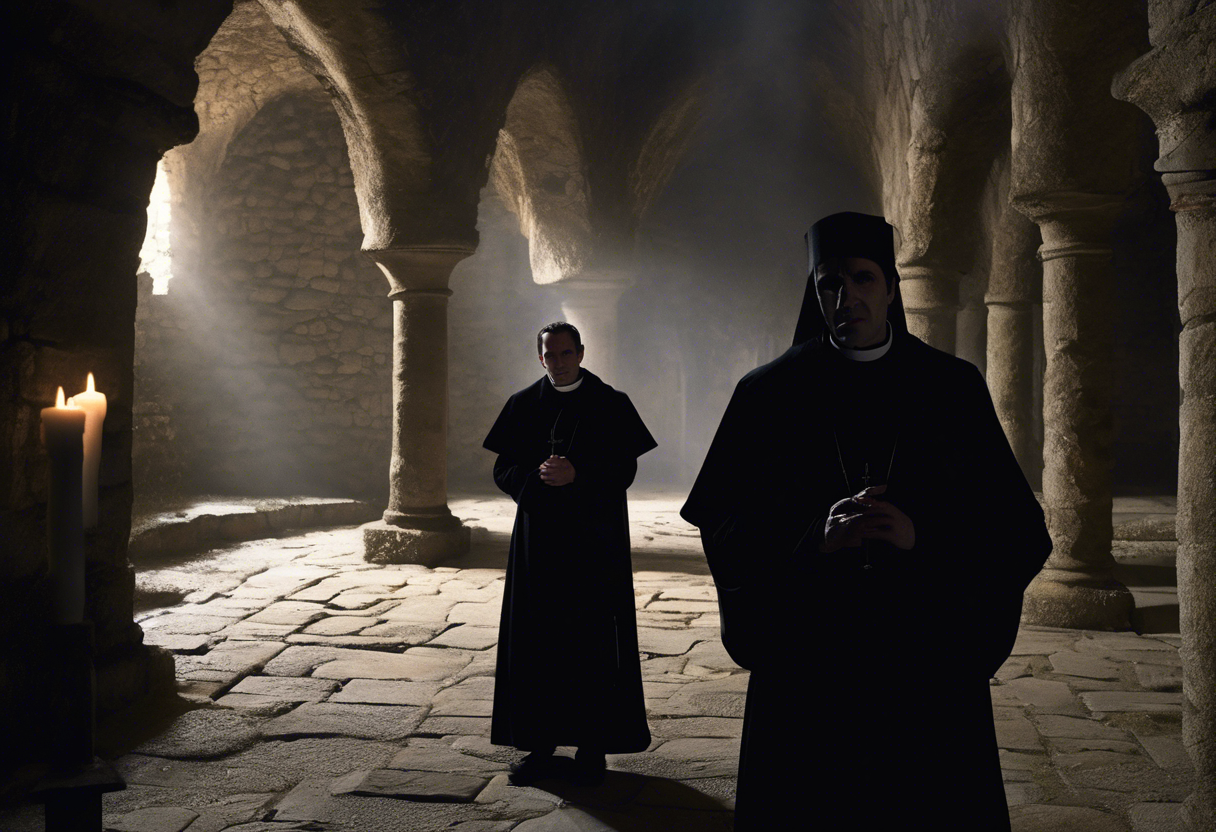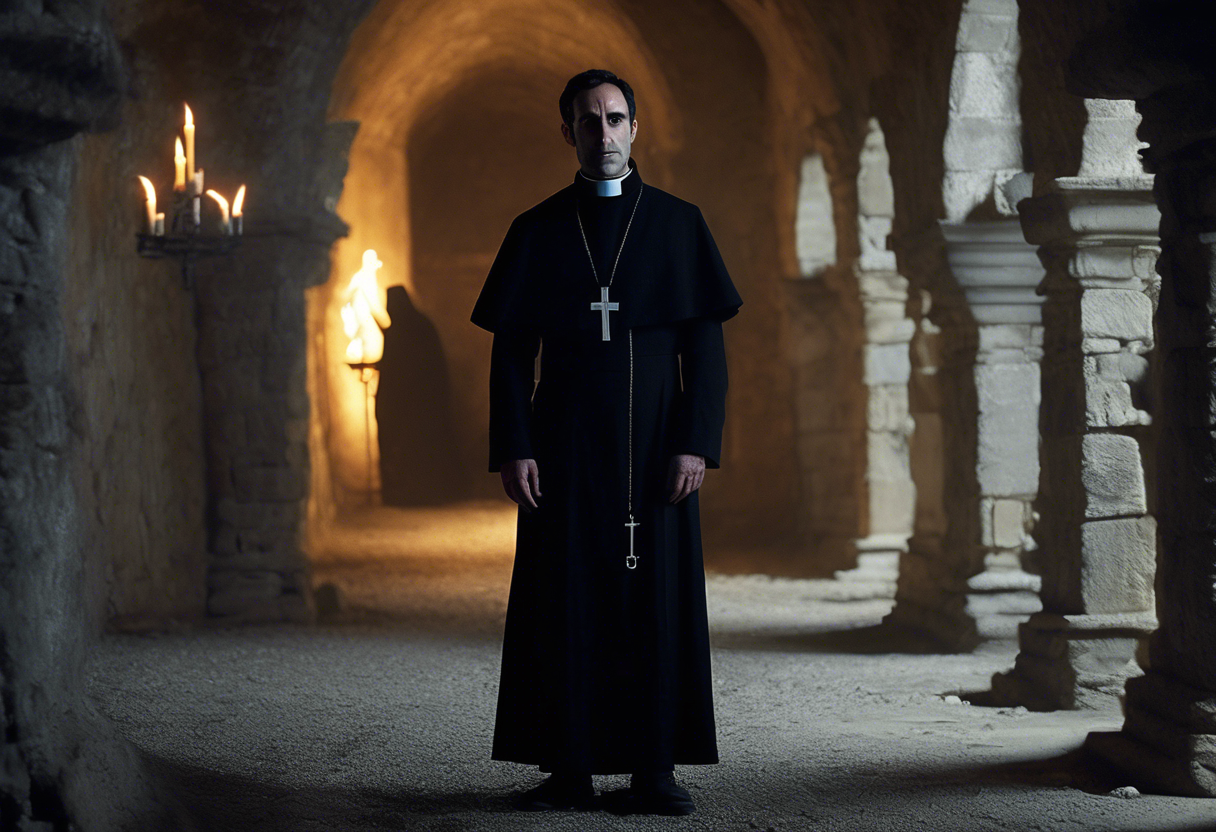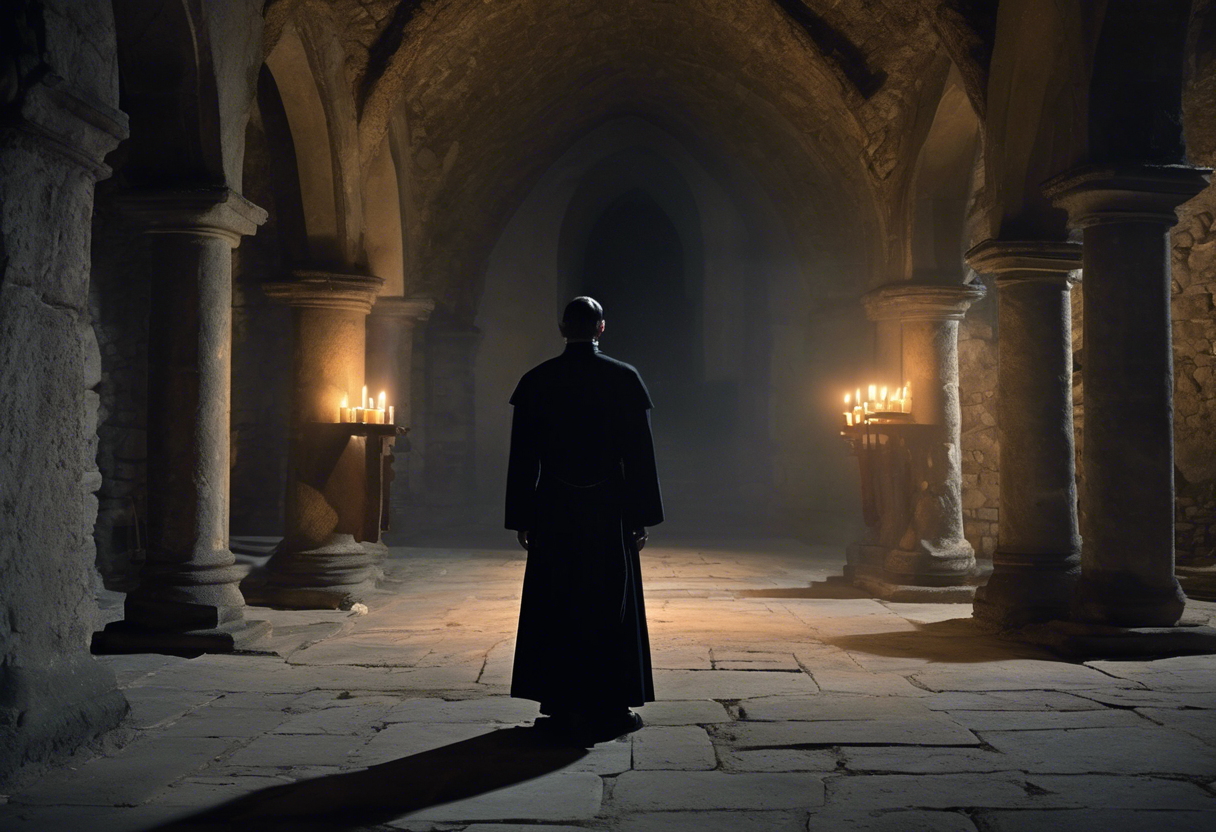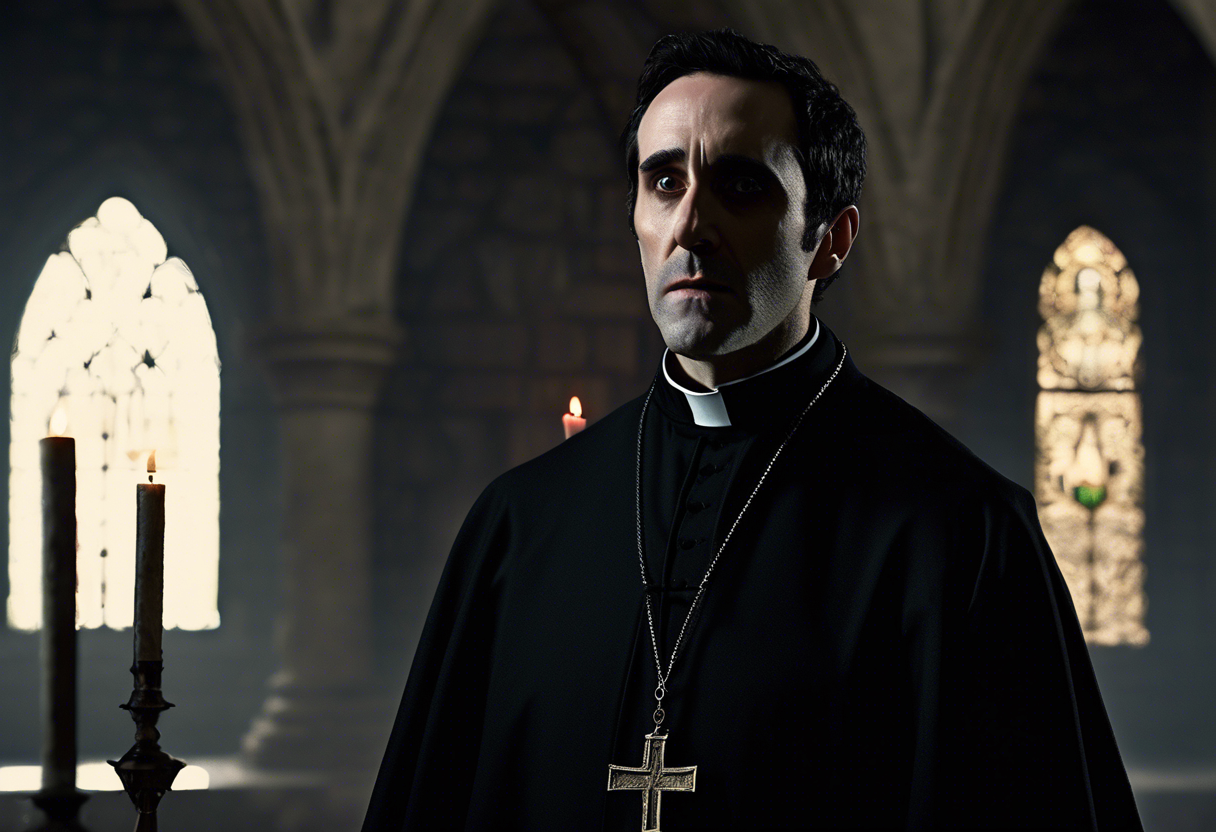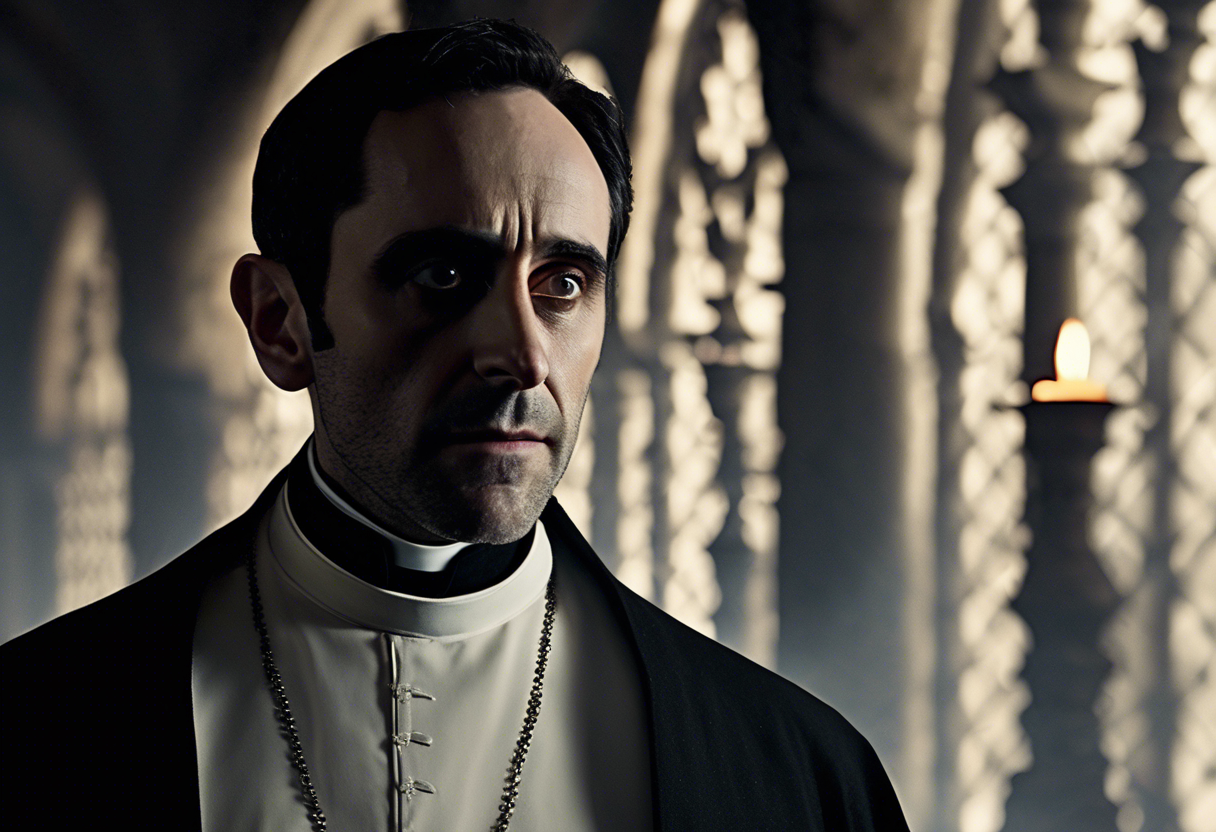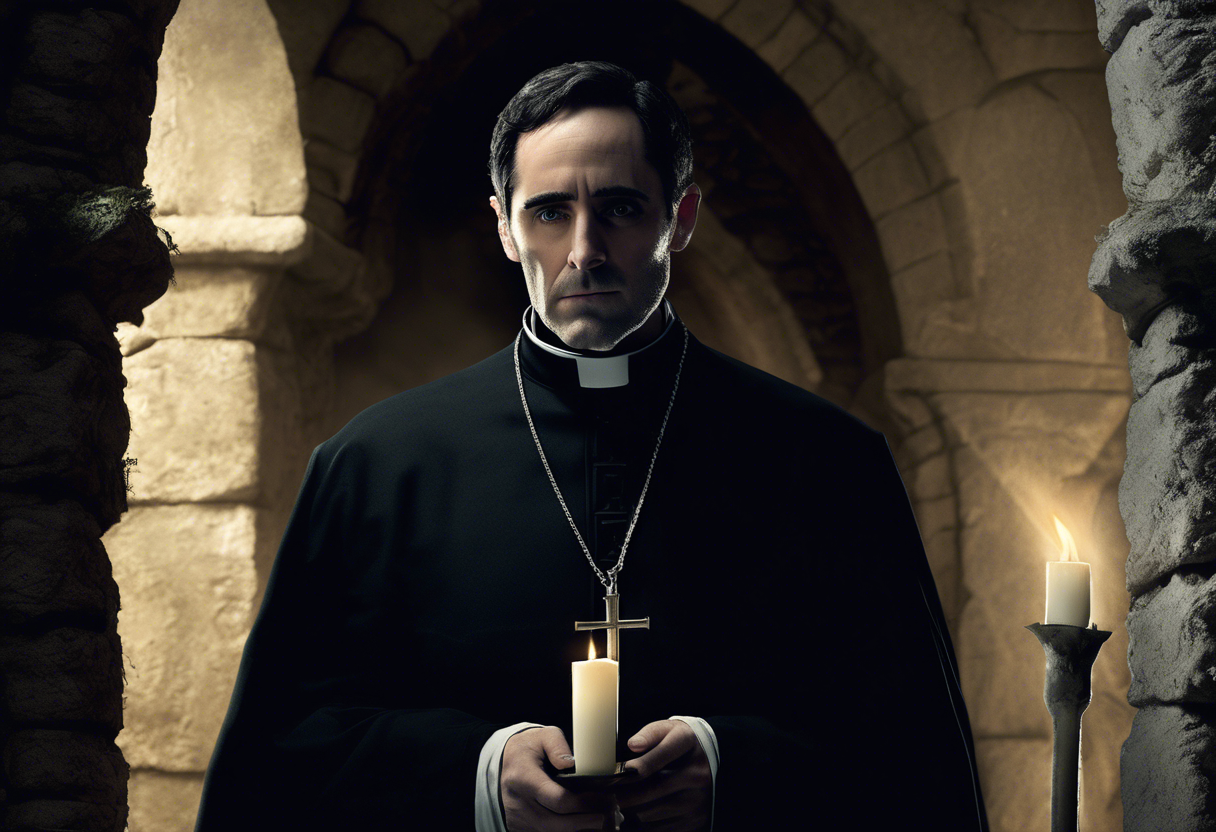Father Burke: A Comprehensive Analysis from "The Nun" (2018)
Contents
Introduction
Father Burke is a pivotal character introduced in The Nun (2018), a supernatural horror film directed by Corin Hardy and serving as a prequel within The Conjuring Universe. Portrayed by Demián Bichir, Father Burke is a Catholic priest sent by the Vatican to investigate a demonic presence at a secluded monastery in 1952 Romania. Conceived as a complex figure blending faith, trauma, and a relentless battle against evil, Father Burke’s character embodies the archetype of the haunted exorcist, making a crucial contribution to the film’s tension and narrative depth. His role bridges horror folklore with religious mysticism, and connects to prior depictions of demonic entities seen in The Conjuring series, emphasizing the pervasive struggle between good and evil within the cinematic universe [1][4].
Role in the Story
The narrative arc of Father Burke begins with his Vatican-commissioned investigation into a mysterious nun’s death at Saint Carta’s monastery. Partnered with Sister Irene, a novice nun, Burke journeys into the heart of oppression and darkness enveloping the abbey. His storyline is marked by his battle with hallucinations linked to a failed exorcism, notably visions of a boy whose life he could not save—highlighting his inner torment and doubt. This psychological struggle culminates in a dramatic moment when the demonic entity traps and buries him alive in the cemetery surrounding the monastery.
Despite this, Burke survives and, through his desperate efforts, uncovers the nature of the demon known as Valak and the monastery’s dark history: originally a fortress for a Duke obsessed with the occult, whose dealings opened a portal to hell sealed with a vial of Christ’s blood. Throughout the film, Burke’s progression from a man driven by faith to a hunter deeply scarred by past failures unfolds, influencing his decisions and the eventual confrontation with the demonic forces. His relationship with Sister Irene is one of mentorship and mutual reliance, underscoring human frailty amidst supernatural threats [1][2].
Character Analysis
Father Burke is portrayed as a complex and multifaceted protagonist. Motivated by faith and a responsibility to combat evil, he is equally burdened by personal demons — his guilt over a lost exorcism victim and a profound sense of failure. This duality makes him compelling: he is a fighter on multiple fronts, battling both tangible evil and his own psychological darkness, which humanizes him and resonates with audiences seeking depth beyond typical horror archetypes.
His strengths lie in his unwavering courage and resourcefulness, as well as his knowledge of occult and ecclesiastical lore. However, his flaws emerge through his haunted past, which sometimes clouds his judgment and leaves him vulnerable to the demonic illusions. Over the course of the film, Burke evolves from a rigid, haunted man to a more collaborative figure, working alongside Sister Irene to face the threat. This development adds layers to his persona, framing him as a “miracle hunter” caught between his vocation and his private anguish [1][3].
Themes and Symbolism
Father Burke’s character embodies several core themes central to The Nun. Primarily, he represents the struggle between faith and doubt. His journey highlights the challenges of maintaining belief when confronted with evil that seems overwhelming and deeply personal. Burke also symbolizes the concept of redemption; his confrontation with demonic forces is as much about saving others as it is about confronting his own past mistakes.
Symbolically, Father Burke is a figure of light combating darkness, faith confronting nihilism. His survival after being buried alive reflects a rebirth motif, suggesting the possibility of salvation even from utter despair. His role bridges the sacred and the profane, drawing on religious symbolism such as the Blood of Christ vial and exorcism rites, which intensify the film’s exploration of good versus evil [1][3].
Cultural Impact
Since his introduction, Father Burke has become a memorable figure within The Conjuring Universe. Portrayed with nuance by Demián Bichir, the character’s blend of haunted intensity and human vulnerability has resonated with fans of the horror genre. Despite not returning in The Nun 2 (2023), where other characters like Sister Irene appear, Burke’s presence continues to influence fan discussions and analyses related to the lore of Valak and the thematic underpinnings of the franchise.
His status as a demon hunter with a tortured soul contributes to the archetype of religious heroes in horror media, influencing portrayals in spin-offs and inspiring character types that balance faith and fear. Although his screen time is limited to one film, his impact is evident in the enduring interest in his backstory and unresolved conflicts [1][2].
Critical Reception
Critics have acknowledged Father Burke as a notable strength in The Nun‘s narrative framework. Demián Bichir’s portrayal has been praised for injecting depth into what might otherwise have been a standard horror protagonist. His character’s internal battles and compelling motivations are seen as elevating the film’s emotional stakes.
However, some reviewers have noted the film’s conventional storytelling and occasional reliance on horror clichés, which somewhat underutilizes Father Burke’s potential for greater character exploration. Despite this, the general consensus appreciates the blend of faith and fear embodied in Burke, recognizing him as a well-crafted figure within the horror genre’s religious subtext [4].
Legacy
Father Burke’s enduring appeal lies in his embodiment of the eternal conflict between faith and darkness, a theme that remains relevant across cultures and storytelling mediums. He personifies the idea that heroes are flawed and haunted yet courageous — a powerful message that transcends genre boundaries.
While absent from direct sequels, his character has become a reference point for discussions about resilience and redemption in horror cinema. His archetype has inspired similar portrayals of religious figures in supernatural narratives, emphasizing human vulnerability amidst cosmic horror.
Father Burke continues to be a subject of fan interest, critical analysis, and thematic interpretation, securing his place as a significant figure within The Conjuring Universe and contemporary horror lore [1][2][3].

